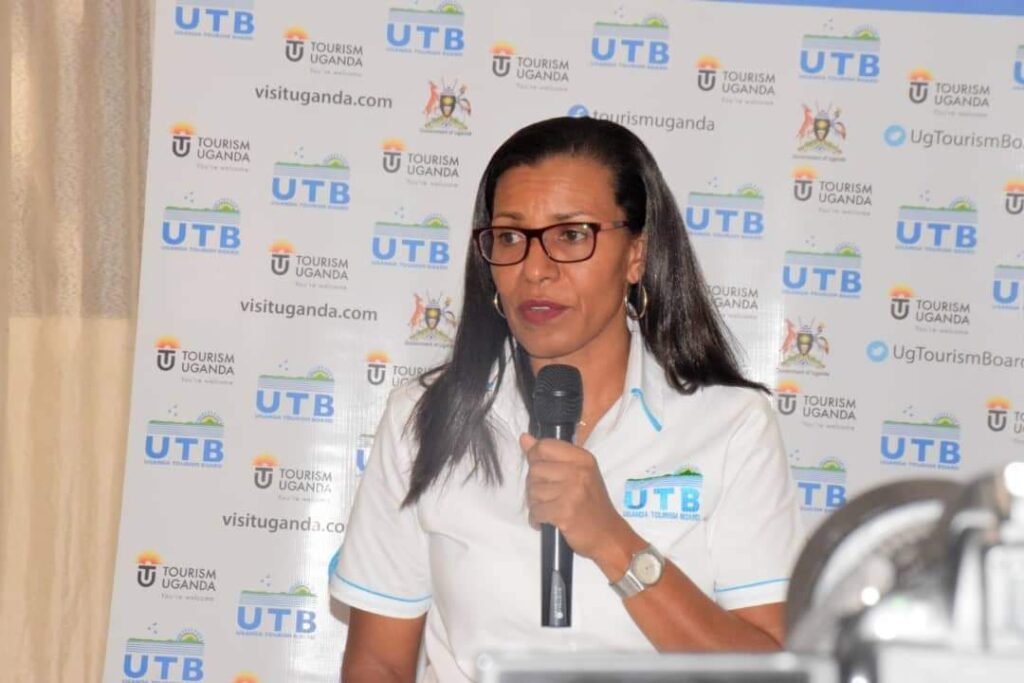
The Uganda Tourism Board (UTB) has announced that come January 1, 2023, all tourism players in the country will require to be registered, and licensed by the Board.
The UTB Chief Executive Officer, Lilly Ajarova made the pronouncement while speaking at the training of Public Health Inspectors on the regulatory mandate of the Board, and minimum standards for Accommodation facilities in preparation for the forthcoming Inspection of Accommodation facilities Countrywide.
Ajarova said that every player must meet the minimum standards to be in operation as Uganda repositions itself to attract more tourists following the outbreak of COVID-19 pandemic that shut the tourism industry.
“Considering the impact of COVID-19 to the tourism sector, we are giving time to everyone to pick themselves up, organize themselves until the end of the year before we can start the enforcement. So, we have given a notice that come January 1, 2023, we need to start the enforcement of these requirements,” she said.
“There is no way we are going to grow the sector, without improving our services. So, we are giving this time until the end of the year for everyone to try their best,” she added.
Uganda has about 3,879 tourism players in accommodation, 1,111 Tour and Travel Companies, and 937 – tour guides.
The tourism private sector players include; Tour Operators, Travel Agencies, Tour Guides, Hotel Owners, Tourism site owners (Private, Cultural, and Religious) among others.
The tourism private sector bodies include; Uganda Hotel Owners Association (UHOA), Association of Uganda Tour Operators(AUTO), Uganda Association of Travel Agents (TUGATA), Uganda Safari Guides Associations (USAGA), Uganda Community Tourism Association (UCOTA), Uganda Association of the Conference & Incentive Industry (UACII) and Uganda Tourism Association (UTA).
All these will have to be registered, licensed and supervised by the UTB.
“It is by law; The Tourism Act, that every tourism enterprise is supposed to be registered, inspected and licensed by UTB in order for them to operate legally. This law has been in place since 2008,” Ajarova said.
On licensing, Ajarova said UTB does not base on which tourism players have the best practices, but those ones that fully comply with minimum requirements, adding that UTB will work together with players to continuously improve the sector.
“You cannot be a restaurant, and you don’t have a toilet, you cannot be a restaurant and you don’t have a place where people can wash their hands.”
The registration, licensing and supervision of tourism players aims to promote both domestic and international tourism.
“With this, we need to make sure we are competitive. We know how the pandemic has impacted tourism. We had accommodation facilities and different tourism enterprises shut down. And for that reason, there has been a lot of struggle to get everyone to restart their businesses, especially the facilities. Maintenance was minimal during the total lockdown, and for that matter, we are very aware that we need extra work to get back on track, and even surpass what we had pre COVID-19, to be able to be competitive at the continental and global level,” Ajarova said.
